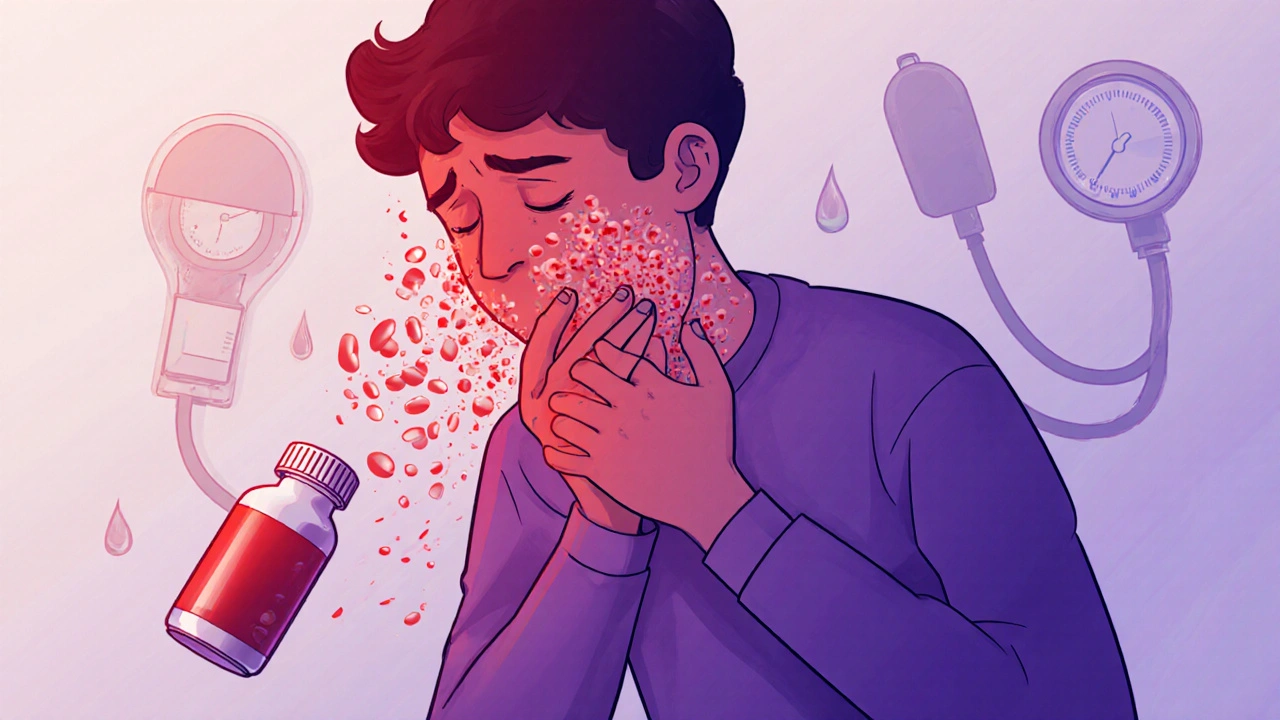Drug Reaction: What It Is, Why It Happens, and How to Stay Safe
When your body responds badly to a medicine, that’s a drug reaction, an unintended and harmful response to a medication. Also known as an adverse drug event, it’s not always an allergy — sometimes it’s just your system reacting in a way no one expected. These reactions can be mild, like a rash or upset stomach, or life-threatening, like swelling in your throat or a sudden drop in blood pressure. The truth? Almost everyone takes at least one medicine that could trigger a reaction, and many people don’t even realize they’re at risk.
Some drug reactions are tied to your health history. For example, if you have an immunocompromised system, a weakened immune response from disease or treatment, common drugs like steroids or biologics can turn dangerous by making infections more likely. Others are linked to your genes — some people process meds differently, leading to buildup and toxicity. Then there are drug interactions, when two or more medications clash in your body, like taking diclofenac with blood thinners and raising your bleeding risk. Even something as simple as an antihistamine, a common allergy pill can cause trouble if you have narrow-angle glaucoma, triggering sudden eye pressure spikes.
What makes this even trickier is that reactions don’t always show up right away. You might take a drug for weeks before your body says, "Enough." That’s why monitoring matters — whether it’s checking your kidney function on Losartan-Hydrochlorothiazide, watching for dizziness with oxybutynin, or spotting skin changes after starting a new antibiotic. You’re not just taking a pill; you’re starting a conversation with your body, and you need to listen.
There’s no magic way to predict every reaction, but you can cut your risk big time. Know your meds. Ask your doctor or pharmacist: "Could this interact with anything else I take?" Keep a list of everything — including supplements and OTC painkillers. If you’ve had a reaction before, write it down and share it every time you see a new provider. Don’t assume a generic version is always safe — sometimes the fillers or coatings trigger issues too.
Below, you’ll find real-world guides on the most common and dangerous drug reactions people face — from how antihistamines can harm your eyes to why certain antibiotics need careful dosing. These aren’t theory pages. They’re practical checklists, comparisons, and warnings based on actual patient experiences and medical evidence. Whether you’re managing a chronic condition, just started a new prescription, or had a strange side effect you can’t explain, you’ll find answers here — no jargon, no fluff, just what you need to stay safe.
Anaphylaxis from Medications: How to Recognize and Respond to a Life-Threatening Allergic Reaction
Anaphylaxis from medications is fast, deadly, and often misdiagnosed. Learn the warning signs, why epinephrine is the only lifesaver, and how to act before it’s too late.

